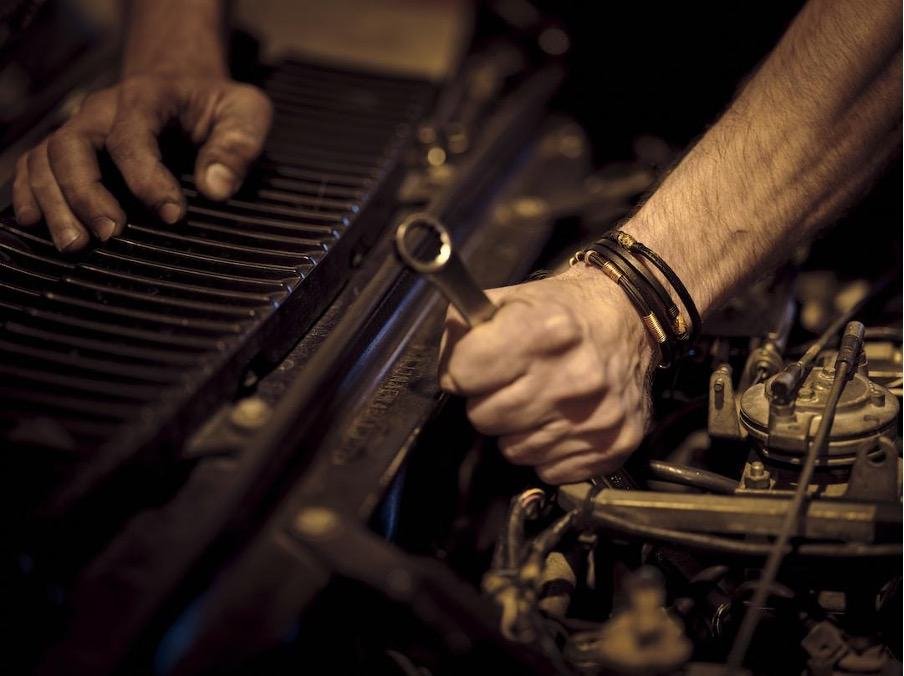Embarking on adventures in a recreational vehicle (RV) offers unparalleled freedom to explore the open road. However, it is crucial to understand that an RV is not only a vehicle but also a mobile home, which comes with its unique set of maintenance requirements. Keeping your RV in top condition ensures safety, longevity, and uninterrupted enjoyment of your travels. Below, we’ll delve into the essential aspects of RV maintenance to help you preserve your home-on-wheels.
Protecting the Exterior of Your RV
Your RV likely takes a beating while out on the road. During travel, most RVs are subjected to rainfall, snow, wind, sun, a whole lot of dust and dirt, and anything and everything else life out on the road can throw at them. However, all of these elements take a toll on the vehicle’s paint job, wheels, and even internal mechanics. As a result, it’s important to give your RV a break from these damaging elements when it’s not in use.
One of the best ways to protect your RV or camper while it’s not being used is to invest in a custom-fit RV cover. These covers are specifically designed to fit your RV type perfectly, ensuring a snug and secure fit that provides the utmost protection for your vehicle. Whether you have a trailer, motorhome, or fifth wheel, there is a custom-fit cover available for every type and size of RV.
Not only do protective covers shield your vehicle from rain, snow, sun, and dirt, but they also prevent scratches and dings caused by branches, debris, and even small animals. The cover acts as a protective barrier, minimizing the chances of any damage occurring while your RV remains stationary. Additionally, RV covers can help preserve the overall appearance of your vehicle, preventing the paint from fading or chipping due to exposure to harsh weather conditions.
Furthermore, custom-fit RV covers offer a great solution for preserving your RV’s internal mechanics. By keeping dust, dirt, and moisture at bay, these covers help prevent rusting and corrosion of various components, such as metal parts and wiring. This ensures that your RV remains in optimal condition and ready for your next adventure.
Understanding the Basics of RV Maintenance

Maintaining an RV is about more than just aesthetics; it’s about functionality and safety. The basics involve regular inspections and servicing of the engine, brakes, and other vital systems. Much like a regular car, oil changes, brake checks, and tire rotations are part and parcel of an RV’s routine care. However, because an RV encompasses living quarters, additional elements, such as plumbing and electrical systems, require attention as well.
Inside the RV, appliances need to be checked and cleaned, including the refrigerator, stove, and heating and cooling systems. This not only ensures they operate efficiently but also prolongs their lifespan. Furthermore, checking smoke detectors, carbon monoxide alarms, and fire extinguishers should be part of your routine to ensure the safety of all passengers.
Properly winterizing your RV is another crucial aspect, as the cold can wreak havoc on its systems, especially plumbing. Draining the water system and protecting it from freezing temperatures is essential for preventing costly damages. Conversely, in warmer climates, ensuring your RV is well-ventilated will aid in preventing mold and mildew growth.
Tackling Common RV Issues: Leaks, Tires, and Batteries
Leaks are some of the most common issues faced by RV owners. They can originate from the roof, around windows or doors, or within the plumbing system. Regularly inspecting these areas, especially after extreme weather, can prevent costly repairs. If a leak is detected, address it immediately with the appropriate sealant and consult a professional if necessary.
Tire maintenance is critical for road safety. An RV’s tires endure heavy loads and long distances, making them more susceptible to wear and tear. Regularly checking tire pressure, rotating tires, and inspecting for signs of damage can avert blowouts and other dangerous situations on the road.
Battery failures are another typical issue for RVs, particularly those that sit idle for extended periods. Ensure batteries are kept clean and corrosion-free. During the off-season, disconnect the batteries and store them in a cool, dry place. Using a battery maintainer will keep them charged without overcharging, extending their lifespan significantly.
Overall, the key to trouble-free RV adventures lies in diligent maintenance and an understanding of your vehicle’s needs. By following the guidance above, you can ensure that your home away from home remains reliable and enjoyable for all your traveling aspirations.